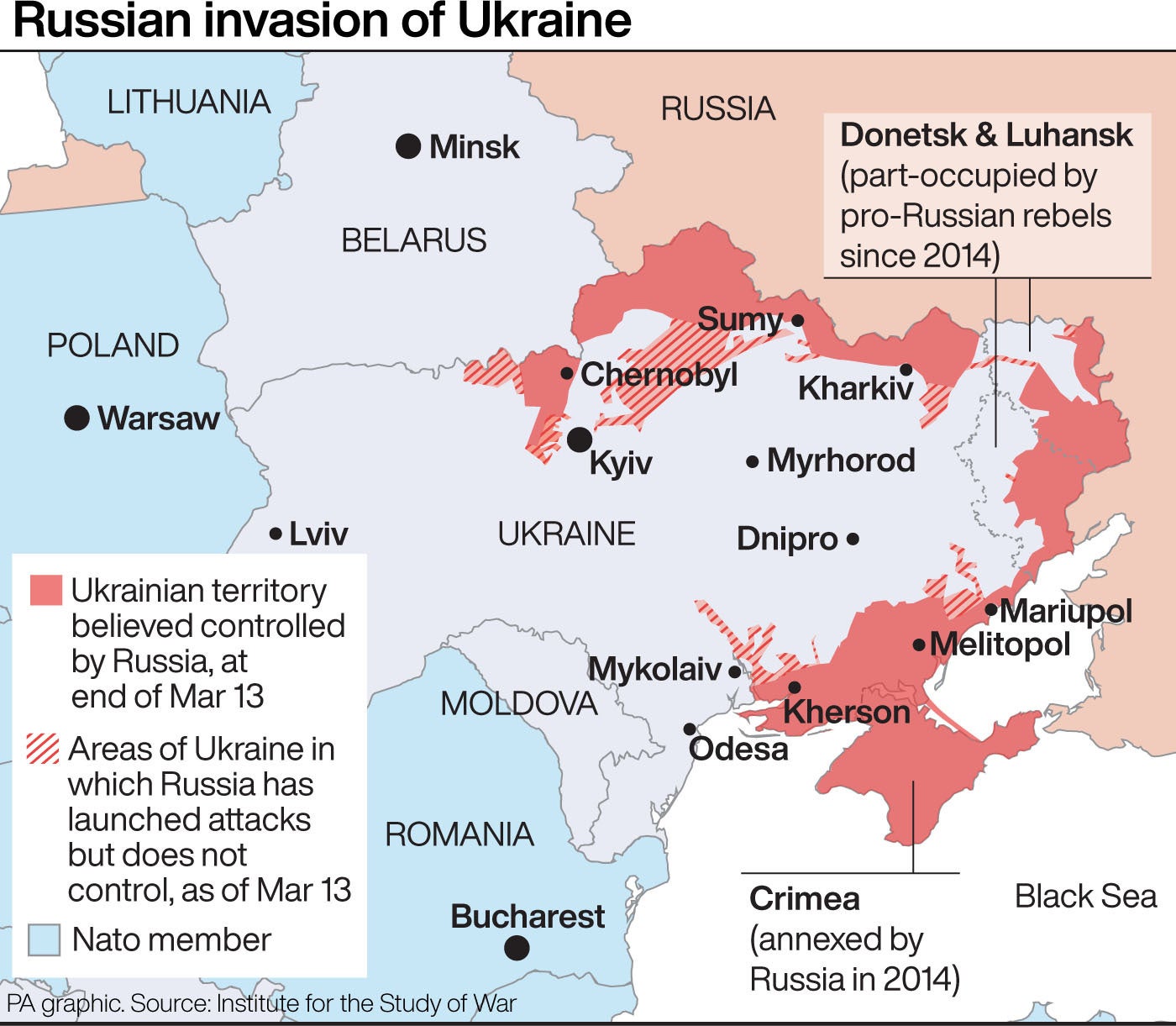
The Bank of England has joined a host of other central banks and international institutions to help ensure the security of Ukraine’s assets and aid its eventual economic recovery, The Independent has learned.
Andrew Bailey, the governor, spoke on the phone with his Ukrainian counterpart, Kyrylo Shevchenko, according to sources familiar with the bank’s operations.
The conversation forms part of a broader effort by the UK’s central bank, government and other allies’ institutions, to safeguard assets which could otherwise fall into Russian hands amid the ongoing invasion.
Central banks around the world have also been seeking to help safeguard Ukraine’s financial infrastructure and key data, The Independent understands. Meanwhile, workers at Ukraine’s central bank have taken their operations underground in order to keep Ukraine’s financial system operating.
UK officials are considering what role Britain could play in assisting the country’s economic reconstruction as and when peace is eventually secured following Russia’s invasion.
The Washington-based global lender of last resort, the International Monetary Fund (IMF) has said the Ukrainian economy could shrink by 10 per cent this year, and much more if the conflict is drawn out.
“Increasing loss of physical capital stock and mass migration would result in a significantly more pronounced output contraction, a collapse in trade flows, further diminished tax collection capacity, and a greater deterioration in the fiscal and external positions,” the IMF said.
The security of Ukraine’s central banks reserves has been a pressing concern. These are used to fulfil an economy’s balance of payments needs, ensuring it can pay its way. Ukraine held around $18.8 billion worth of foreign exchange reserves, gold and special drawing rights in 2017, according to the CIA World Factbook.

The physical, currency, or bond assets of a central bank are often partly held in other countries. This includes gold reserves.
A recent example of protecting a national asset from a regime that western governments find unpalatable was in the aftermath of the Taliban takeover of Afghanistan. Following the regime change, Afghanistan’s foreign reserves and gold were frozen at central banks including the US Federal Reserve and the Bank of England.
With stringent sanctions already in place, Russia is unlikely to be able to seize any of Ukraine’s central bank assets and cannot even use its own.
According to public statements on the National Bank of Ukraine’s website, the central bank has raised 11.8 billion Ukrainian hryvnia in order to aid its war effort, equivalent to around £300m. This is in addition to support from a range of international institutions, including $1.4 billion from the IMF.
Still, for Russia, it is “highly, highly improbable” that it will be able to access its special drawing rights at the IM, because it will be unable to convert the reserves into currency with the help of financial institutions, IMF head Kristalina Georgieva said on March 10.
Ms Georgieva added on March 13 in a separate interview that it was not “improbable” Russia would default on its sovereign debt payments. This would have limited impact on the global financial system, however, given Russia’s relative size compared to other economies.
Ukraine’s economy suffered after the annexation of Crimea by Russia in 2014, which helped cause a 17 per cent reduction in GDP.
However, it had returned to growth prior to the latest Russian military attack, according to the CIA World Factbook. Services accounted for around 60 per cent of economic output in 2017, compared to industry and agriculture at 28.6 per cent and 12.2 per cent respectively.
IT services have boomed in Ukraine in recent years. A wide range of technology and professional services firms had expanded their presence or outsourced activities to engineers in Ukraine in recent years. IT exports exceeded $5 billion in 2020 for the first time, according to figures from IT Ukraine Association, a trade body.
Amazon-owned Ring, a technology company, attracted particular attention after the former chief operating officer of its Ukrainian contractor (and now member of the Ukrainian parliament), Kira Rudik, took up arms in defence of her country.







